Getting approved for affiliate programs can be difficult, particularly for those who are just starting in affiliate marketing.
For background, I’ve been managing programs for well over ten years, so I’ve seen some crazy stuff when reviewing affiliate applications.
Some good, some bad but mainly phony, scammy stuff. Think ugly coupon sites.
In this article, we delve into proven strategies for getting approved for affiliate programs, drawing from a decade of experience managing these programs.
The guidance provided here aims to help affiliate marketers, especially newbies, navigate the often complex approval process and start earning commissions fast.
Establishing Credibility
To gain trust and respect, you must present yourself as a credible affiliate marketer.
You can’t just waltz into an affiliate program with a half-baked website and expect them to roll out the red carpet for you. A good affiliate manager will do their homework and research who you are before you represent and promote their brand.
Importance of having an attractive website design
Do you know that saying “Don’t judge a book by its cover”?
Yeah, well, no one follows that advice when it comes to affiliate program applications.
If your main website looks like it was designed in 1999 using Microsoft Paint, then good luck getting approved for any relevant affiliate programs.
I hate to say it, but it’s true.
Invest some time (and maybe even money) into creating a beautifully designed website that showcases your expertise and appeals to the affiliate program’s key audience.
You can score relatively cheap themes from an Etsy designer or even use Canva to build a website for free.
Creating original, engaging content for your niche
No copycats allowed: Affiliate program owners have seen it all before – so if they come across yet another website regurgitating the same old information as every other site on the internet, yawn. Be original and create unique content tailored specifically to the interests of your audience.
Show off those writing skills: If Shakespeare were alive today he’d probably be making bank as an affiliate marketer (or at least running his successful blog). While I’m not suggesting you need soliloquies in every article – make sure whatever content you’re penning is engaging, informative and well-written.
Be consistent: Posting sporadically isn’t going to cut it. Set a routine for putting out new material on your website – whether that’s weekly or monthly – and stay consistent with it. Consistency not only helps build credibility but also keeps your audience coming back for more.
One of the affiliate networks, Impact, it even lists out the Domain Authority (DA) so affiliate managers can understand how high or low your site ranks.
So, if you want companies to take you seriously, get serious about establishing yourself as an authority in your niche with an attractive website design and original content that ranks.
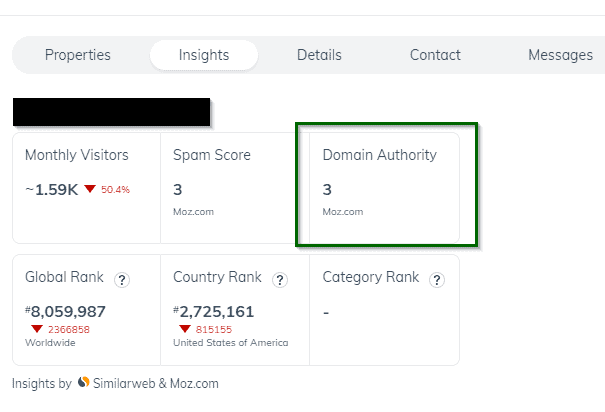
Affiliate Application Process Do’s and Don’ts
Oh, the dreaded application process.
To be honest, the vast majority of affiliate networks try to make it seamless for affiliates when applying to programs.
For some applications, it’s a two-click process just clicking on the “apply” button.
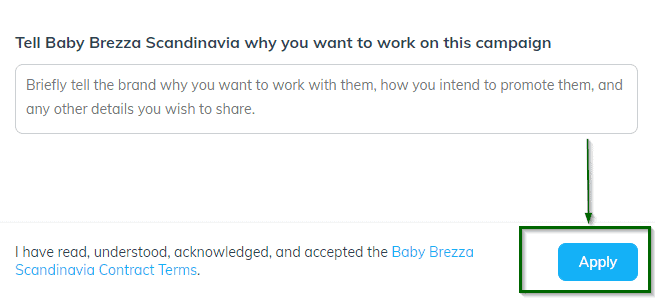
However, when the affiliate managers start to dive into those applications, you want to make sure all the requested data is there.
Do: Choose a Professional Email Address
You might think that your “cutiepie1995@yahoo.com” email address is charmingly nostalgic, but trust me – affiliate managers don’t share your sentiment.
I’ve seen this come up often with content creators or influencers.
Instead of using an outdated email provider like Yahoo, Hotmail, Comcast, AOL, etc. opt for something more professional like Gmail or even better – a custom email address.
Gmail: You can never go wrong with good ol’ Google. Create a free Gmail account specifically for business purposes so you can separate work from play.
Email Address Matching Your Website: If you’re feeling extra fancy and want to impress those affiliate managers right off the bat, invest in a custom domain-based email address like “yourname@yourwebsite.com”. It screams professionalism.
Do: Share How You Plan on Promoting Their Product/Service
We know what you’re thinking: “Do I need to tell them my master plan?”
The answer is yes. Always yes.
Affiliate managers want to understand your promotional activities, especially if it involves a unique marketing strategy that sets you apart from the competition.
In addition, it’s important for compliance reasons when they review your affiliate application.
I would never approve of someone that didn’t list how they would highlight their activity. So go ahead and spill the beans on your tactics, like:
Email marketing campaigns
Search activity even PPC ads
Social media channels
Website’s content
Video reviews or tutorials featuring the affiliate program’s products/services
Don’t: Being Vague and Not Listing Your Promotional Activities
We are all digital marketers, so make sure to outline what TYPE of digital marketing you are currently using.
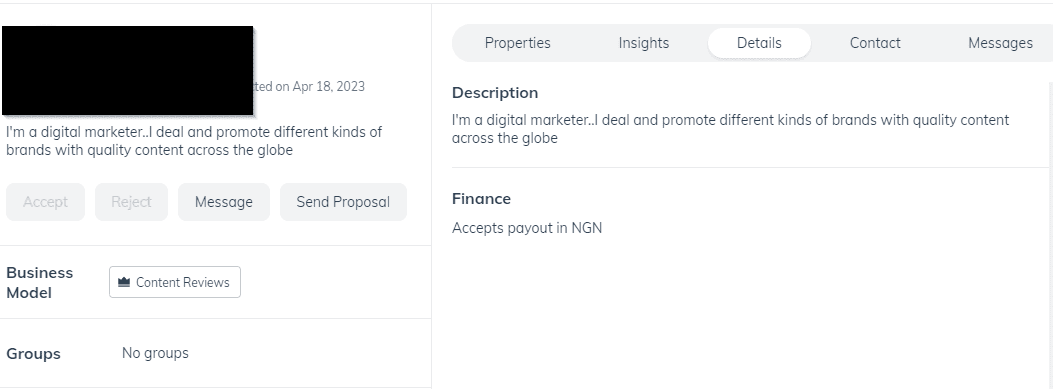
I can usually sniff out when an affiliate’s profile is riddled with fluff or lies. Make sure your application is clear and well-written.
If English is not your native language, download the Grammarly Chrome extension, it will save you a ton of time with proofreading!
I use it all the time even writing emails.
Lastly, make sure to showcase how serious you are about promoting their brand and why you’d be a good fit. If you’ve used their product or service in the past, share what you loved about it.
Trust me, it builds authenticity in your program application.
Networking & Building Connections
Interacting with others to build relationships is the cornerstone of successful networking.
You know, that thing where you have to put on your best fake smile and pretend to be interested in other people’s lives? Yeah, that one.
But hey, it turns out that building connections are pretty important when it comes to getting approved for affiliate programs.
They often call the affiliate channel the “relationship channel” for that reason.
Participating in online forums & social media groups within your niche
By connecting with others in your niche, you’ll not only learn valuable tips and tricks from fellow marketers but also establish yourself as an authority figure who knows their stuff.
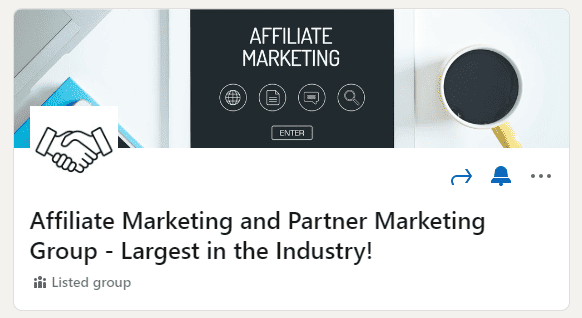
I’ve found that Linkedin and Facebook are two great platforms that host groups within the affiliate marketing industry.
Don’t just lurk – engage. Ask questions, share insights, and contribute meaningfully so others remember who you are.
Attending industry-specific conferences/events
In case spending hours staring at screens isn’t enough for you, attending real-life events like conferences or meetups can help take your networking game up a notch.
These gatherings allow you to rub elbows with some big names in the industry while shamelessly promoting yourself at every opportunity.
Check out vendor or agency blogs for conference information. They often list those important dates for everyone to remember
.In summary, networking is key when trying to get approved for affiliate programs. So go forth and schmooze with the best of them.
Selecting Appropriate Partnerships
Now, I know what you’re thinking: “I’ll just apply to every affiliate program under the sun and see which ones stick.”
One crucial aspect many applicants overlook when attempting approval involves selecting appropriate partners whose offerings align well with their existing content strategy.
Remember quality over quantity reigns supreme within this realm.
Aligning partner products/services with existing content strategy
You wouldn’t want a vegan food blogger promoting leather jackets now, would you?
It’s essential to make sure the products or services you plan on promoting are in line with your current content.
This not only increases your chances of getting approved but also ensures that your audience will be interested in what you have to offer.
So take some time and do a little research on potential partners before applying.
Analyze if their product/service complements your niche.
Determine whether it adds value for your readers/audience.
Evaluate if it fits seamlessly into future content plans.
Focusing on quality partnerships rather than quantity
I get it; everyone wants more money rolling in without having to lift a finger (ahem… passive income).
However, don’t let greed blindside you into partnering up with every Tom, Dick, and Harry who offers an affiliate program.
Focus on building strong relationships with high-quality partners who genuinely share similar values and goals.
On the flip side, make sure not to push a ton of work for a small commission. Affiliate is a numbers game and you want to start making more money online with your efforts.
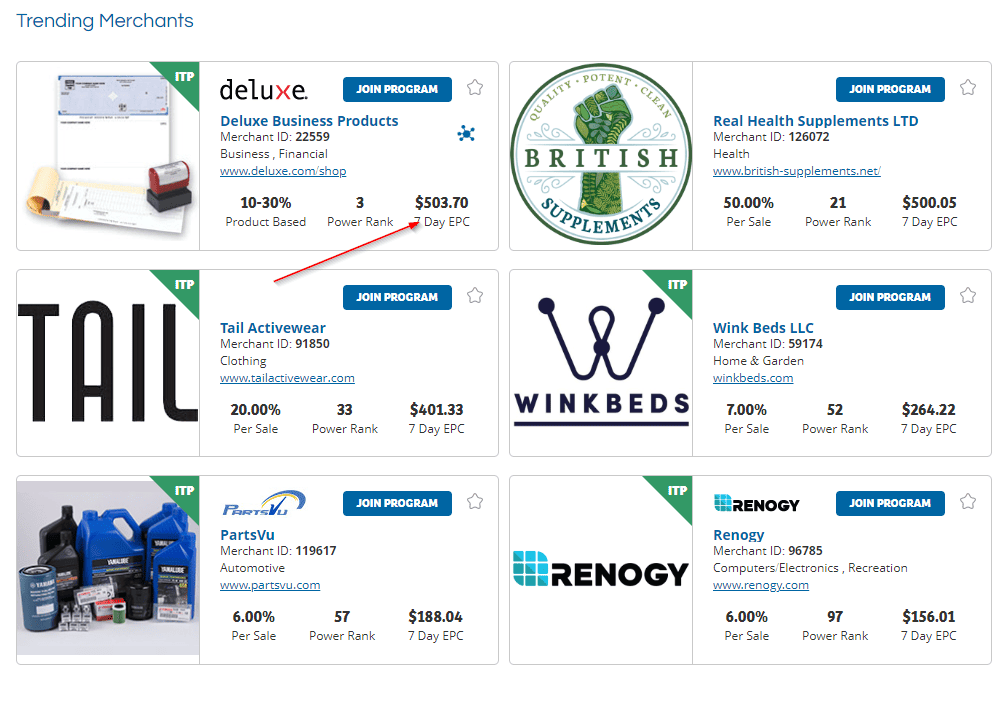
Here are some qualities to look for in a good affiliate partner:
A reputable brand with a solid reputation (no shady business).
High-quality products/services that your audience will love.
Fair commission rates and payment terms (you deserve it.).
Answering any questions promptly. Look to see if there is an email or dedicated person/agency listed for the company.
In the end, building strong partnerships is like dating – take your time, be selective, and make sure they’re worth investing in.
After all, no one wants to waste their precious time on dead-end relationships.
Conclusion
Getting approved for affiliate programs can be challenging, but with the right strategies, it’s achievable. Establish credibility with an attractive website design and original niche content to increase your chances of acceptance into top-tier programs.
During the application process, use professional email addresses and describe your promotion plans. Build connections through online forums, social media groups, and industry-specific conferences to improve your approval chances.
Focus on quality partnerships that align with your content strategy, not quantity.
Frequently Asked Questions
How do I get approved for an affiliate program?
To increase your chances of getting approved for an affiliate program, focus on establishing credibility through a professional website design, creating original and engaging content within your niche, using a professional email address, and describing how you plan to promote their products or services.
Networking and building connections in the industry can also help improve approval rates.
How do I approach a company to become an affiliate?
When approaching a company to become an affiliate, research their existing affiliate programs or partnerships.
Craft a personalized pitch that highlights your expertise in the niche market and explains how you will effectively promote their products or services.
Demonstrate your knowledge about the brand’s target audience and provide examples of successful past collaborations if possible.
Remember that you’ll also have to be approved within affiliate networks before you can send in your application & pitch.
How do I get approved for Amazon Affiliate?
To get approved for Amazon’s Affiliate Program, create high-quality content on your website or social channels related to products available on Amazon.
Ensure compliance with Amazon’s guidelines by avoiding prohibited practices such as incentivizing clicks or promoting inappropriate content.
Complete the application process accurately by providing detailed information about traffic sources and promotional strategies.
How long does it take to get approved for an affiliate program?
The time it takes to get approved varies depending on the specific program; some may approve applications instantly while others might take several weeks.
To expedite approval times, ensure all required information is provided during application submission including accurate contact details, relevant experience in promoting similar products/services, and clear promotional plans outlining marketing channels used.





